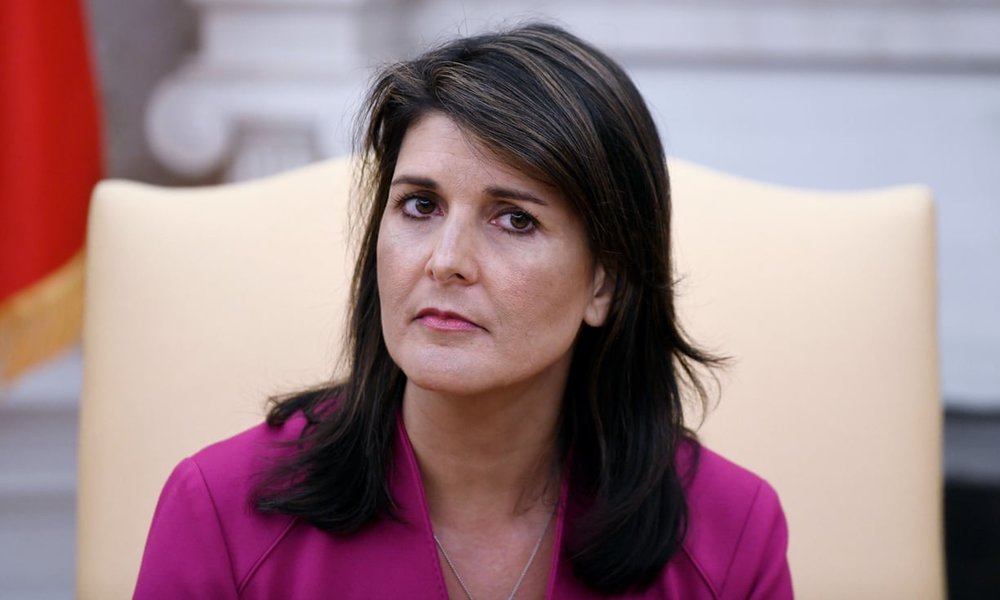Nikki Haley's departure reflects the chaos of U.S.'s foreign policy

Not unlike in an autocracy, U.S. foreign policy is hostage to the erratic whims of the president, directed by Trump tweets and what he sees on Fox News
Another one bites the dust. That’s the story of Donald Trump’s foreign policy team. In his 22nd month in office, the president is on his third national security adviser and second secretary of state. Now, Trump has to fill yet another national security position: a new U.S. ambassador to the United Nations.
The resignation of U.S. ambassador to the UN Nikki Haley came as a surprise to everyone, including apparently the secretary of state, Mike Pompeo, and White House staff. While many senior officials leave after two years, the resignation announcement of a cabinet member immediately before midterm elections is rare. The speculation is already rampant: was Haley fed up with the chaos of the Trump administration? Was one of Trump’s daily affronts to basic decency and democratic norms finally too much? Is she planning to run against Trump in the 2020 Republican presidential primary, despite claims to the contrary?
As we learn more in the coming days and months, one thing is clear: the Trump administration’s foreign policy is in chaos, and there’s no one minding the store.
Not unlike in an autocracy, U.S. foreign policy is hostage to the erratic whims of the president, directed by Trump tweets and what he sees on Fox News.
Some argue that Trump has a foreign policy. Perhaps it is driven by classic realpolitik – America doesn’t have friends, only interests – which might explain his affection for dictators and disdain for U.S. allies. Perhaps it is isolationism, driving Trump to tear up international agreements and reduce immigration. Or perhaps he just views foreign policy as a mano-a-mano showdown with each and every government – friends, allies, adversaries – over anything that smells of victory, from trade deficits to extorting allies for more money.
Regardless of the impulses driving specific policy decisions, U.S. foreign policy under Trump on any given day appears to be propelled by whether or not the president is on a Twitter rampage.
Whatever the reasons for her departure, it is unlikely to have a significant impact on U.S. foreign policy. Donald Trump is the only official who truly speaks for U.S. foreign policy, and everyone else is just playing a part.In this environment, no U.S. official is anything more than a supplicant at the court of Trump. Former secretary of state Rex Tillerson and former national security adviser HR McMaster chafed at this approach and couldn’t last. Current secretary of state Pompeo, on the other hand, has nestled himself into a nice perch in the court, and proven himself capable of morphing into whatever role the president desires.
In her time at the UN, Haley mostly played the part of the good soldier: attack the integrity of the UN by taking steps to undermine it, like pulling the U.S. out of the UN human rights council; claim to stand up for Israel by cutting off funding to the Palestinians. But sometimes, Haley’s actions at the UN – such as her harsh words for Russia over its role in Syria – made it seem as if Haley was conducting her own, more traditionally conservative, foreign policy at Turtle Bay.
And that’s illustrative of the anarchy that is the Trump foreign policy. While the national security adviser, John Bolton, attempts to undermine diplomacy with North Korea, Pompeo plays desk officer for Trump’s outreach to North Korea, and the secretary of defense, James Mattis, tries to protect the US-South Korea alliance. It certainly shows that Bolton reportedly doesn’t like holding national Security Council meetings of the “principals” (cabinet officials).
The disorganization is exacerbated by the astonishingly high number of unfilled senior positions. While the turnover of cabinet-level officials on the national security team is unheard of at this point in a presidential term, so, too, is the number of empty senior positions throughout the bureaucracy. For instance, according to one analysis, only 45% of the state department’s Senate-confirmed positions are in place. The lack of confirmed assistant secretaries of state, deputy assistant secretaries of state and ambassador spots around the world cripples U.S. foreign policy on a daily basis. Whether the issue is a trade war or nuclear diplomacy with Iran or North Korea, foreign governments are perplexed about U.S. foreign policy and who speaks for the U.S. Almost two years into Trump’s term, one recent poll of 25 countries revealed that 70% of people have “no confidence” in Trump, despite Haley’s boasts of unprecedented respect for the U.S.
Which brings us back to Nikki Haley’s departure. Whatever the reasons for her departure, it is unlikely to have a significant impact on U.S. foreign policy. Donald Trump is the only official who truly speaks for U.S. foreign policy, and everyone else is just playing a part.
To date, the administration’s foreign policy chaos has inflicted lasting damage on the U.S. and the world. And the scary part – yes, it could get much scarier – is that the Trump team has not even been tested with a genuine international crisis, such as a terrorist attack in the U.S. Nikki Haley or no Nikki Haley, help us all if Trump is presented with a real national security crisis.
(Source: The Guardian)
Leave a Comment